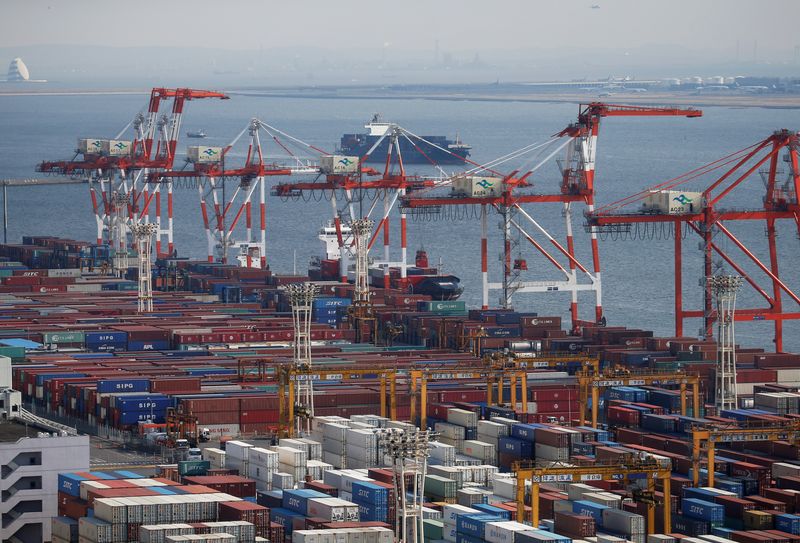By Tetsushi Kajimoto
TOKYO (Reuters) – Japan’s imports grew more than 40% for a fifth straight month in September to hit the largest value on record, Ministry of Finance (MOF) data showed on Thursday, as a slump in the yen added to already high fuel import costs.
The surge in imports overwhelmed growth in exports, resulting in a 2 trillion yen ($13.34 billion) trade deficit and extending the run of shortfalls to 14 months, which could add to downward pressure on the Japanese currency.
Persistent deficits will worsen Japan’s terms of trade, causing a shift of domestic income to overseas and undermining Japanese purchasing power.
Once welcomed for making exports more competitive, the yen’s excessive weakness is now seen hurting households and retailers by inflating already high prices of imported fuel and food. The yen’s sharp falls also heighten uncertainty for firms in making business decisions.
The MOF data showed Japan’s imports rose 45.9% year-on-year in September, led by crude oil, liquefied natural gas and coal, roughly matching economists’ median estimate for a 45.0% gain.
It was the 20th straight month of gains and amounted to 11 trillion yen in value, the largest on record. It followed a 49.9% gain in the previous month.
Exports rose 28.9% in September from the same month a year ago, driven by U.S.-bound shipments of cars and demand for chip and electronics parts from South Korea. The rise in exports compared with a 27.1% increase expected by economists, following a 22.0% rise in August.
By region, exports to China, Japan’s largest trading partner, grew 17.1% year-on-year in September, led by demand for cars and chip-making equipment.
U.S.-bound shipments advanced 45.2% in the year to September, led by shipments of cars, construction and mining machinery.
Japan’s economy expanded at an annualised 3.5% in April-June, posting a third straight quarter of growth, as the lifting of COVID-19 curbs boosted consumer and business spending.
Japanese authorities spent 2.8 trillion yen intervening to sell the dollar and buy the yen for the first time since 1998 to support the Japanese currency. The yen has fallen by some 20% to the dollar this year to hit a 32-year low.
($1 = 149.8700 yen)
(Reporting by Tetsushi Kajimoto; Editing by Sam Holmes and Richard Pullin)
